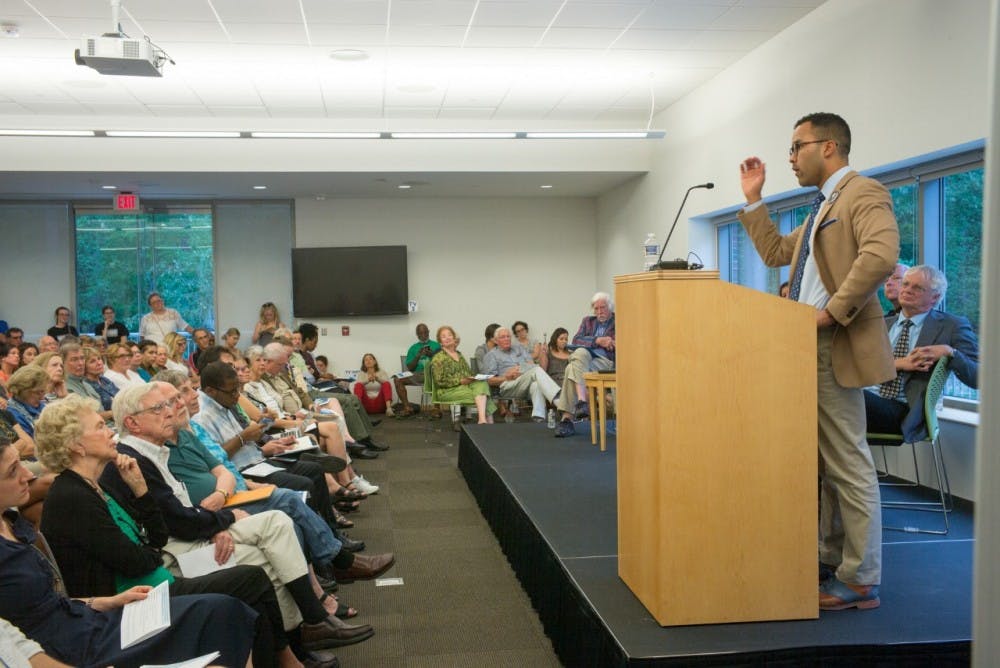On Sept. 26, Carolina Public Humanities will present "Life & Death in the Jim Crow South" at the Chapel Hill Public Library. This event is free and open to the public.
UNC professors will hold a discussion that will explore what it was like living in the Jim Crow era. Seth Kotch and William Sturkey will lead the discussion together, and it will be moderated by Lyneise Williams.
Sturkey said that the topics that are going to be discussed directly relate to historical memory and the legacies of race that students and staff are currently dealing with at UNC.
“Carolina Public Humanities has two main goals: We use humanistic perspectives to expand public conversations about important public issues and we connect UNC's faculty with people outside the University," Lloyd Kramer, the director of CPH, said. "The presentations on the legacy of the Jim Crow system by two outstanding professors at a public library will exemplify both of these CPH goals.”
Kotch said when he reached out to Chapel Hill Public Library about putting on the event, they were very responsive and accommodating.
“With Dr. Kotch and Dr. Sturkey having two books published around the same time, and which focus on such important subjects that are so relevant to our community today, we reached out to the library about hosting an evening conversation with these insightful authors around these critical issues," Kramer said.
Sturkey will be educating people on the key characters who worked to sustain Jim Crow laws and those who fought to tear down the unjust system, which he talks about in his book "Hattiesburg: An American City in Black & White."
Kotch, the author of "Lethal State," a history of the death penalty in North Carolina from the slave era to the 1980s, will be diving into Jim Crow’s relationship to the death penalty in North Carolina.
Jim Crow laws have only matured and are now the crime and punishments laws that are enforced in the South today, Kotch said. He said students who the attend the discussion can learn about the legacies of enslavement and how those legacies continue to operate in the South in the 20th century and beyond.




